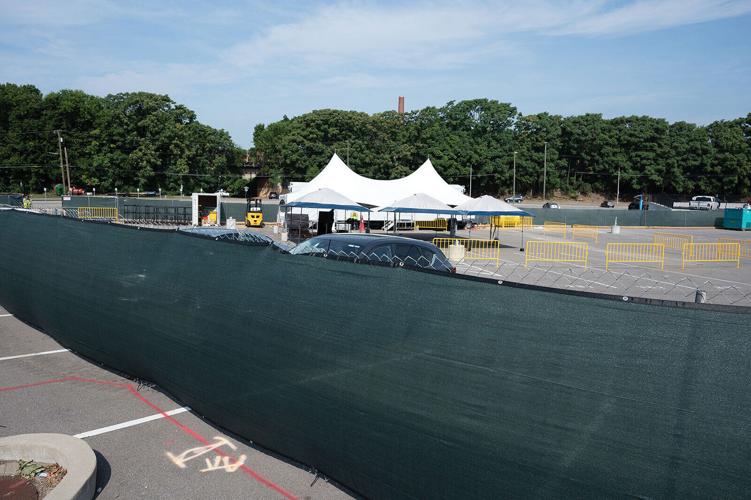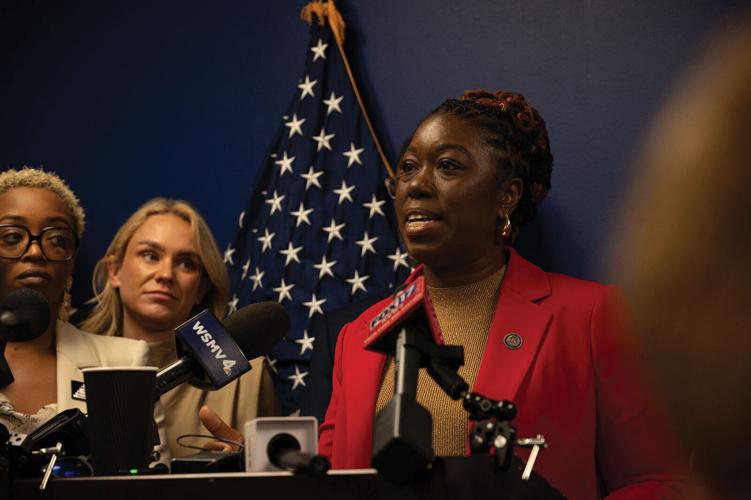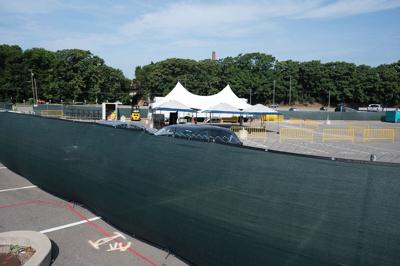Metropolitik is a recurring column featuring the Scene’s analysis of Metro dealings.
Few obstacles remain for a proposed underground tunnel project connecting downtown Nashville with the city’s airport. State Republican leaders have swiftly commandeered the process past local opposition — much of it concerned with the project’s billionaire backer Elon Musk — turning the infrastructure moonshot into a symbol of the ruling party’s hostility toward Nashville and disregard for democratic principles.
The Boring Company, a private tunneling outfit among Musk’s vast business holdings, began staging its Nashville project in mid-July. The company’s scant record includes the 1.7-mile Las Vegas Convention Center Loop. Promising eight-minute travel times in Teslas between the city’s two tourist hubs, the Music City Loop presented a flashy match for Nashville’s well-known transit woes, and major conservative figures lined up to tout the tunnel as a victory for MAGA’s superstar entrepreneur. Their narrative casts the project as an ideological victory: In an instant, juggernaut capitalism could save the hapless liberal capital. Blowing past normal bureaucratic processes is a feature, not an oversight.
Gov. Bill Lee substantiated months of rumors with an official project announcement on July 28 generously sprinkled with adjectives like “innovative,” “bold,” “forward-thinking” and “forward-looking.”
Elon Musk's Boring Company plans to create the 10-mile Music City Loop with no funding from taxpayers
“As Nashville International Airport continues to set passenger records and our city experiences an economic boom, the Boring Company’s investment in the Music City Loop will help ease growing pains and address transportation challenges at zero cost to Tennessee taxpayers,” added U.S. Sen. Marsha Blackburn in the announcement. “The Boring Company could not have picked a better new home for this state-of-the-art tunneling technology than Nashville, and I look forward to seeing the tremendous impact this investment will have on our city and its residents.”
Blackburn’s son, Chad Blackburn, appeared with The Boring Company CEO Steven Davis and local investor Landon Gibbs, whom the younger Blackburn called a “good friend” in a social media post, at the airport launch event. A close relationship between Gibbs and Boring Company executives helped kick-start the project, according to Chad.
Airport CEO Doug Kreulen backs the project, as does the Nashville Area Chamber of Commerce. Musk’s big selling point was the no cash or financing; instead, The Boring Company will get long-term use of the land for free, starting with a two-year lease on a downtown parking lot approved by the State Building Commission on July 31. State Finance and Administration Commissioner Jim Bryson — among the handful of state executives in Lee’s inner circle — presided over the lease approval, which began with harsh words for Bryson and state leaders during a short public comment period. Many speakers during the public comment brought up tunneling challenges presented by the city’s infamous limestone bedrock.
Minutes after the meeting ended, a young Boring Company employee pulled into the parking lot on Rosa L. Parks Boulevard. He declined the Scene’s questions, responding only that he was “here to work” before closing the fence behind him.
State Building Commission allows The Boring Company to use lot for construction staging
Critics, led by state lawmakers including Rep. Justin Jones and Sens. Heidi Campbell and Charlane Oliver — all Democrats — have criticized the speed and secrecy with which the tunnel project has cleared normal bureaucratic hurdles. Jones, whose state House District 52 includes the airport, reported being shut out of the announcement event at BNA and denied further information about the project.
Oliver featured lawmakers and community groups at a press conference following the lease approval.
“ We have residents, we have elected officials, Metro councilmembers here — everyone was excluded from this decision today,” Oliver began the event. She recounted questions about the project’s cost, compensation structure, geological impact and lack of coordination with local and regional planning bodies.
“ Who is the state working for?” Oliver asked. “Who is The Boring Company working for? It’s not serving Nashville. I’ll leave it at that.”

Sen. Charlane Oliver criticizes the Music City Loop project, July 31
Campbell encouraged Tennesseans to see the project in a broader context of anti-democratic efforts by Republicans to eliminate dissent. Soon, Campbell says, the state may attempt to de-charter Nashville altogether, robbing the capital of all local governing power. Kevin Roberts, CEO of conservative think tank the Heritage Foundation, pitched state lawmakers on that very idea at a recent conference.
“ Just a few days later, we see that the governor is selling the ground beneath our feet,” Campbell said. “In light of this obscene and financially irresponsible power grab by the controlling party in Tennessee, the push to rubber-stamp Musk’s tunnel with zero public input becomes all the more alarming. It’s a direct assault on the democratic self-governance of our city.”
At-Large Councilmember Delishia Porterfield also spoke strongly against the project. Mayor Freddie O’Connell says he was first notified of a potential tunnel proposal last summer, but didn’t get any more details “for almost a year.”
The tunnel will run under state roads, cutting the city out of its main planning and approval processes. City leaders and Nashville residents are jarred by the sudden alignment around the project and have asked for due diligence around its safety, timeline and effects on city land and roads. Critics criticize the project as the fruit of corruption, citing social and political connections between Musk, the GOP and relevant state leaders.
At the very least, officials’ disregard for Nashville has provoked the city, which will bear the project’s risk when the boring begins.









